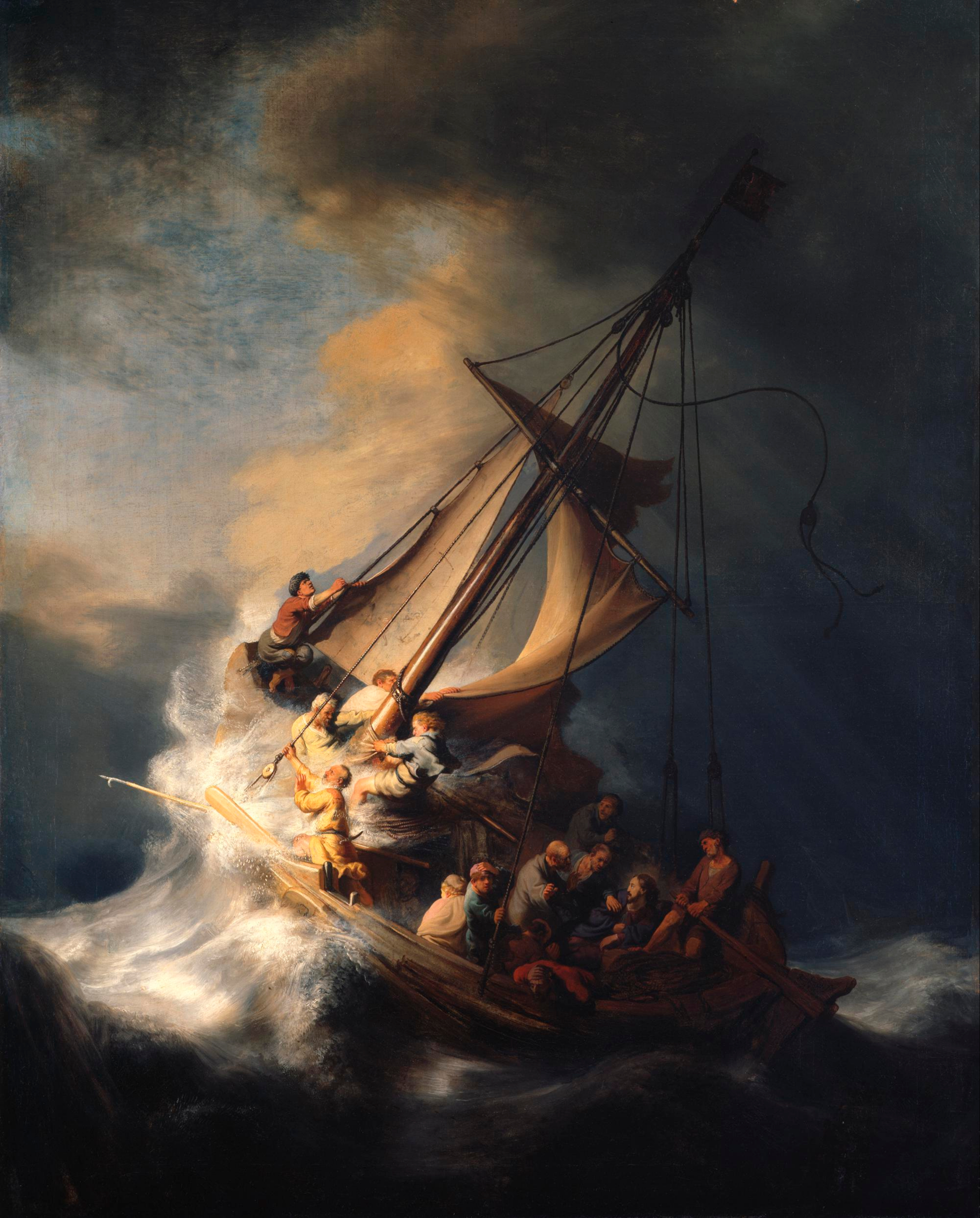Wär Gott nicht mit uns diese Zeit, BWV 14
Were God not with us this time ( BWV 14) is a church cantata by Johann Sebastian Bach. He composed the chorale cantata in Leipzig for the 4th Sunday after Epiphany on the hymn by Martin Luther and performed it on January 30, 1735 for the first time on.
History and words
Bach wrote the chorale cantata in Leipzig for the 4th Sunday after Epiphany ( Epiphany ). In his first year in Leipzig he sleeps on this occasion Jesus, what can I hope for? composed. In 1725, when he composed a annual cycle of chorale cantatas, there was Sunday not because Easter was early. 1735, shortly after the first performance of his Christmas Oratorio, he filled this gap. For Christoph Wolff, it is obvious that Bach 's cycle of chorale cantatas aufführte 1735 and again between what my God wants the g'scheh always, BWV 111 for the third Sunday after Epiphany and I 'm in God's heart and mind for Septuagesima a new cantata needed.
The prescribed readings for the Sunday were Romans 13:8-10 LUT, "So love is the fulfilling of the law ", and Mt 8:23-27 LUT, the storm relief. The cantata text is based on the eponymous hymn in three verses of Martin Luther, a paraphrase of Psalm 124, released in 1524 Johann Walter Eyn geystlich Gesangk Buchleyn. According to John Eliot Gardiner the song in Leipzig was regularly sung on this Sunday. The text of the first and the last verse was maintained for the cantata in the text, an unknown librettist wrote the verse to mean a sequence of aria, recitative and aria, Wolff appoints Andreas Stübel as possible poet. The theme of the song refers generally to the Gospel: Our lives depend on God's help and lost without him. A further connection is given by the images of überflutendem water in the psalm, has rewritten the Luther. The cantata poets developed it, " It 'd have us their fury like a wild flood and überschwemmet as beschäumte water ".
Bach led the cantata on 30 January 1735 for the first time. It is one of his latest surviving church cantatas.
Scoring and structure
The cantata is staffed with three soloists, soprano, tenor and bass, four-part choir, Corno da caccia, two oboes, two violins, viola and basso continuo.
Music
The chorale is to the tune of Where the Lord God not with us keeps singing. This song had also dedicated a chorale cantata, where the Lord God does not hold us, BWV 178 The opening chorus is an unusual composition, which does not follow the scheme of ritornellos in which the soprano sings the cantus firmus in long notes Bach. In one set way that is reminiscent of motets, the strings play colla parte with the voices, each line of the chorale is prepared by a four-part Gegenfuge. The chorale melody is not sung, but recited by the winds in long notes. This results in a five-part set that is unique in Bach's cantatas. The only other piece of similar complexity, also with instrumental cantus firmus is the opening chorus of A Mighty Fortress is Our God, BWV 80, but contains no Gegenfuge.
In the first aria of the soprano is accompanied by the strings, the horn, the "strong" and "weak " makes the text contrast with the singing voice. Gardiner noted that the horn plays in its highest register in the autograph as " Corne. par force and tromba ", respectively. In the central recitative the flooding water through fast passages in the continuo on words like " anger ", " flood " and " überschwemmet " illustrates. Similar word painting painting in the middle part of the bass aria the waves in octave leaps and "downward firing runs ," as Alfred Dürr describes it. The final chorale is a four-part set with bustling lower voices, which is similar to the chorales of the Christmas Oratorio short listed earlier. Wolff emphasized the mature compositional technique in Bach's church cantatas late, in which his experience of years has been received from 1723 to 1729.
Recordings
- J. S. Bach: The cantatas - Sacred Cantatas Vol 1, Gustav Leonhardt, Tölz Boys Choir, King's College Choir, Leonhardt Consort, soloist of the Tölz Boys Choir, Marius van Altena, Max van Egmond, Teldec 1972
- The Bach Cantata Vol 8, Helmuth Rilling, Gächinger Kantorei, Württemberg Chamber Orchestra Heilbronn, Krisztina Láki, Aldo Baldin, Philippe Huttenlocher, Haenssler 1984
- Bach Made in Germany Vol 4 - Cantatas III, Hans -Joachim Rotzsch, St. Thomas Choir, New Bachisches Collegium Musicum, Monika Frimmer, Eberhard Buchner, Andreas Scheibner, Eterna 1984
- Bach Cantatas Vol 19: Greenwich / Romsey, John Eliot Gardiner, Monteverdi Choir, English Baroque Soloists, Joanne Lunn, Paul Agnew, Peter Harvey, Soli Deo Gloria 2000
- Bach Edition Vol 18 - Cantatas Vol 9, Pieter Jan Leusink, Holland Boys Choir, Netherlands Bach Collegium, Ruth Holton, Knut Schoch, Bas Ramselaar, Brilliant Classics 2000
- J. S. Bach: Complete Cantatas Vol 20, Ton Koopman, Amsterdam Baroque Orchestra & Choir, Johan Zomer, James Gilchrist, Klaus Mertens, Antoine Marchand 2002










